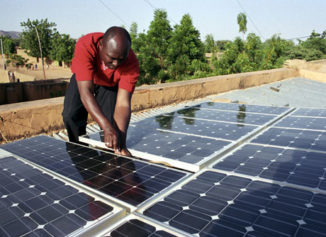Trillions of cubic feet of natural gas believed to lie below the hills of northwest Georgia have remained virtually untouched and unwanted — until now.
Shale gas drilling is slowing across the country, but a handful of companies are poking around this corner of the state looking for the next natural gas “play.” If they succeed, Georgia could join the ranks of states reaping jobs, revenue and fears of environmental damage from energy production, The Atlanta Journal-Constitution has learned.
It has been at least 30 years since Georgia — which has never produced a drop of oil or natural gas — has seen as much exploratory activity.
An Oklahoma-based company that leased 7,500 acres of land outside Dalton has two test wells in place and plans another nearby. Seventy miles away, near Cave Spring, a Texas oil, gas and development conglomerate plans a deeper well.
At least three other companies have recently researched the so-called Conasauga shale field, a 20-by-100 mile swath of farm and forest that runs from Alabama across Georgia and into Tennessee.
Georgia joins Tennessee and North Carolina as Southern states newly popular with wildcatters and major gas and oil companies.
“They know that there’s gas here,” said Rick Huggins, whose mineral rights lease outside Dalton was recently re-upped by the Oklahoma explorers. “But it’s all speculation. It’s like old Forrest Gump said, ‘You don’t know what you got until you open up that box of chocolates,”
The timing is odd. A gas glut and low prices make extraction economically unfeasible in many parts of the country. Production has throttled down in Pennsylvania, Texas and Kentucky.
Northeast Alabama raged with gas fever until 2010 when low prices and technological hurdles cooled the interest. Georgia doesn’t have the infrastructure — the trucks, tanks, pipes and refineries — needed to transform a liquid into a fuel to heat homes and cook food.
Oil and gas men are gamblers, though, looking months or years ahead. Energy analysts predict natural gas prices will rise again as it increasingly replaces coal and other petroleum products. And where there’s gas, there’s usually oil and other money-making liquids nearby.
Read more: AJC


